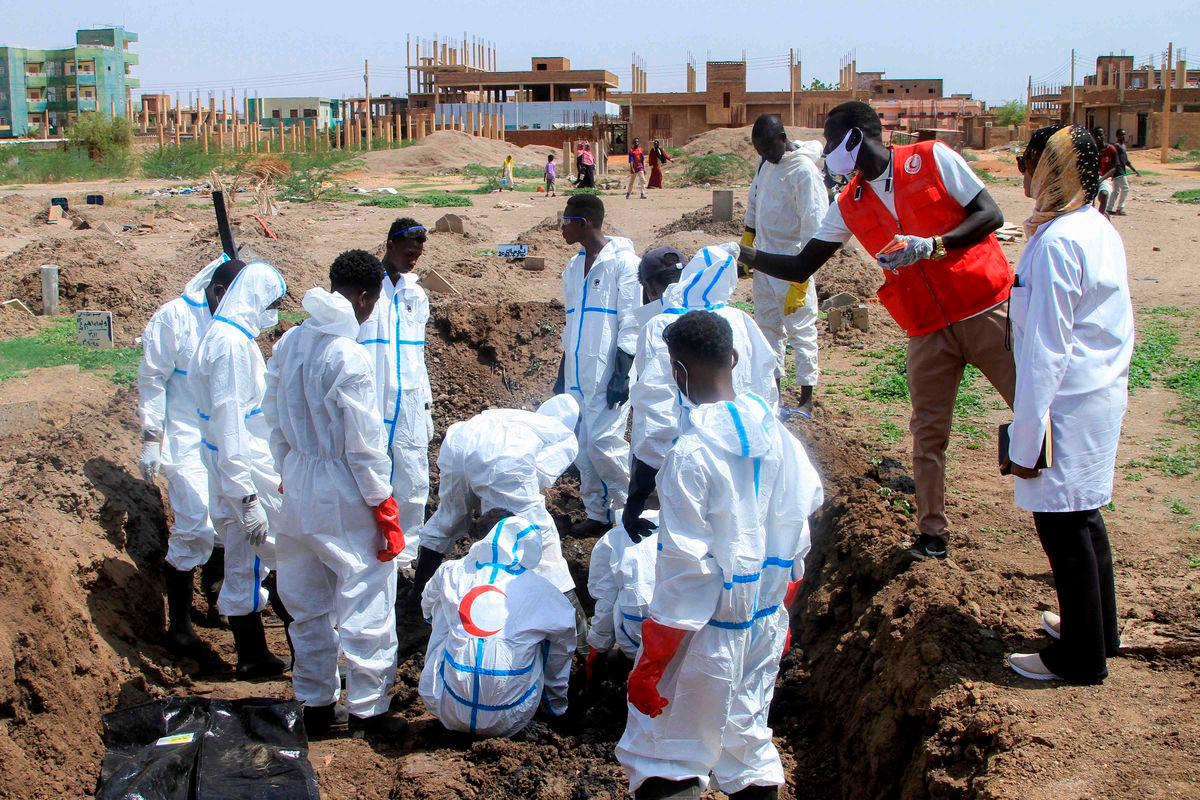KHARTOUM: In Sudan’s war-torn capital, Red Crescent volunteers are undertaking the grim task of exhuming bodies from makeshift graves.
Teams clad in white hazmat suits search vacant lots where families hastily buried their dead during intense fighting.
Hisham Zein al-Abdeen, head of Khartoum’s forensic medicine department, oversees the operation with mechanical diggers.
“We’re finding graves everywhere—in front of homes, inside schools and mosques,” he said.
“Every day we discover new ones.”
The southern neighbourhood of Al-Azhari became a burial ground as clashes between the army and Rapid Support Forces (RSF) raged.
When war erupted in April 2023, RSF forces seized large parts of the city, forcing residents to flee bombardments and street battles.
The army reclaimed Khartoum in March after a fierce offensive, allowing families to finally seek proper burials.
Jawaher Adam, grieving her 12-year-old daughter, stood by a shallow grave where her child was initially buried.
“I had only sent her out to buy shoes when she died,” she said.
“We couldn’t take her to the cemetery. We buried her in the neighbourhood.”
Now, Adam watched as volunteers prepared her daughter’s body for reburial at Al-Andalus cemetery.
Each body is disinfected, wrapped, and labelled before being transported 10 kilometres away.
“It’s painful,” Adam said, “but to honour the dead is to give them a proper burial.”
Many of the dead were buried in residential areas with no access to hospitals or official records.
Former US envoy Tom Perriello estimated up to 150,000 deaths in the war’s first year alone.
A study by the London School of Hygiene and Tropical Medicine recorded over 61,000 deaths in Khartoum within 14 months.
Of these, 26,000 were linked to violence.
In Al-Azhari, a vacant lot initially appearing as a dump site revealed rows of makeshift graves.
Zein al-Abdeen confirmed 317 bodies were exhumed from that location.
His team estimates 10,000 bodies remain buried across the city in similar conditions.
So far, 2,000 have been reburied properly.
Grieving mothers stood silently as volunteers worked, their hands pressed to their chests.
Many families still do not know where their loved ones are buried.
At least 8,000 people were reported missing last year, a figure the Red Cross calls “the tip of the iceberg.”
Unclaimed bodies are documented by authorities for future identification.
Youssef Mohamed al-Amin, director of Jebel Awliya district, said the exhumed site was originally meant for a school.
“We’re moving the bodies so it can serve its original purpose,” he said.
The UN predicts up to two million people may return to Khartoum by year-end if security improves.
Before the war, the city housed nine million people, but 3.5 million were displaced.
Much of Khartoum remains without power, water, or functioning hospitals. - AFP









